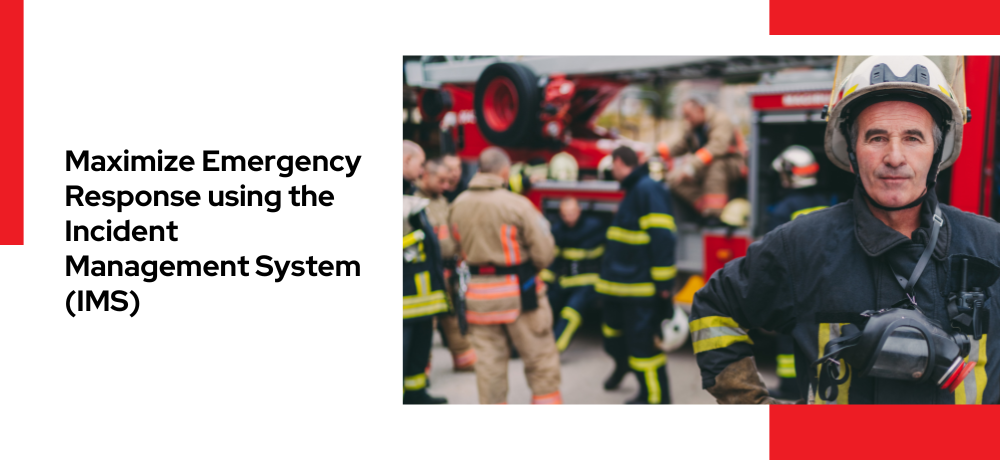Maximize Emergency Response using the Incident Management System (IMS)
Categories: Emergency Operations Centre , Emergency Planning , Emergency Preparedness

Having an established IMS-based emergency management program can make all the difference in minimizing the impact of an incident and ensuring an effective and efficient recovery. In this blog, we'll explore how the Incident Management System (IMS) can help organizations maximize their response, ensure the health and safety of responders, and communicate effectively with staff, customers, community partners, government, and 9-1-1 Emergency Services.
Incident Management System (IMS)
-
Understanding the Incident Management System
IMS is a standardized management system used by emergency responders and organizations to manage emergencies and disasters. It is designed to provide a transparent chain of command, establish roles and responsibilities, and ensure effective communication and coordination between responders, thus ensuring their safety. IMS is flexible and scalable, which means it can be used for emergencies of any size or complexity. After the terrorist attacks of 9/11, the USA, Canada, and the G8 nations agreed to use the Incident Management System to ensure effective communications and coordination internationally and domestically between Federal, State/Provincial, Municipal, public, and private sector businesses. Canada has been a diligent partner in ensuring IMS is used at all levels across the country.
-
Implementing the Incident Management System
IMS provides a logical emergency response structure. IMS requires an Incident Commander to be in charge at the incident location to manage the tactical response from the Incident Command Post (ICP). The Incident Commander reports to the Emergency Operations Centre (EOC). At the EOC, the strategic level of executives and operations oversee the incident, activating the right response with the resources needed, while maintaining essential operations outside of the incident. The roles, procedures and forms used in the EOC are based on the IMS format.
-
Benefits of using IMS:
-
Improved communication and coordination: IMS provides a clear chain of command, roles and responsibilities, and a common language, which helps to ensure effective communication, coordination and alignment between responders and community partners including Police, Fire, EMS, and other government agencies.
-
Enhanced situational awareness: IMS provides a comprehensive framework for emergency response, which helps ensure that all responders clearly understand what is happening during the incident. This situational awareness guides authorities to make informed decisions based on accurate information.
-
Faster response times: IMS provides a standardized approach to emergency response, which helps to ensure that responders can quickly and efficiently react to incidents.
-
Responder safety: IMS provides interoperability between all response agencies ensuring responder safety.
The Incident Management System provides a standardized, practical, and coordinated approach to emergency response, risk management, and crisis communications which can help organizations minimize the impact of an incident and ensure a quick recovery.
At Get Ready, we can help you implement an IMS-based emergency management program tailored to your organization's needs. Learn more about how we can help you!
Get in touch with us today!
To learn more about the services we offer, please click here. To get in touch with us, please click here.



